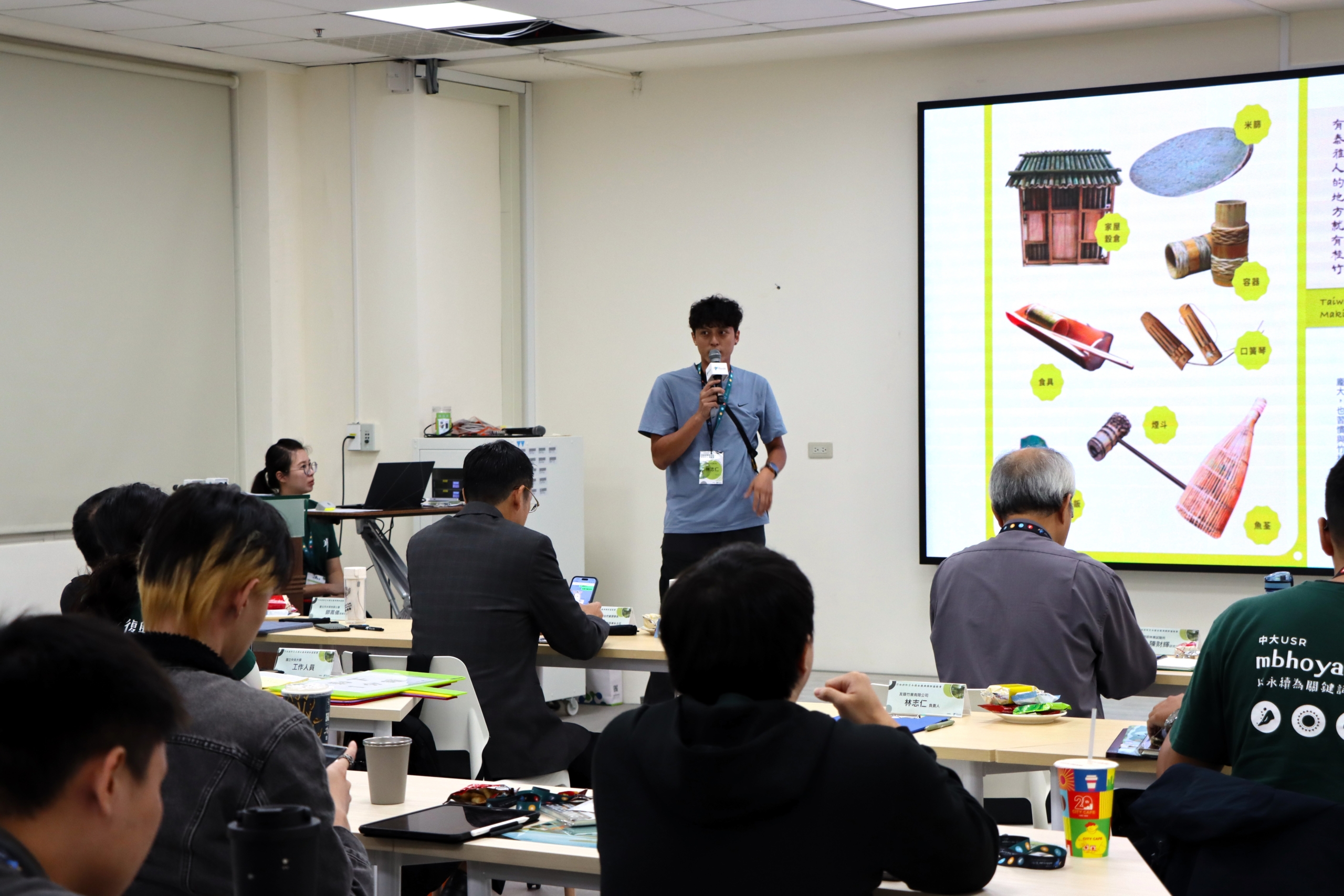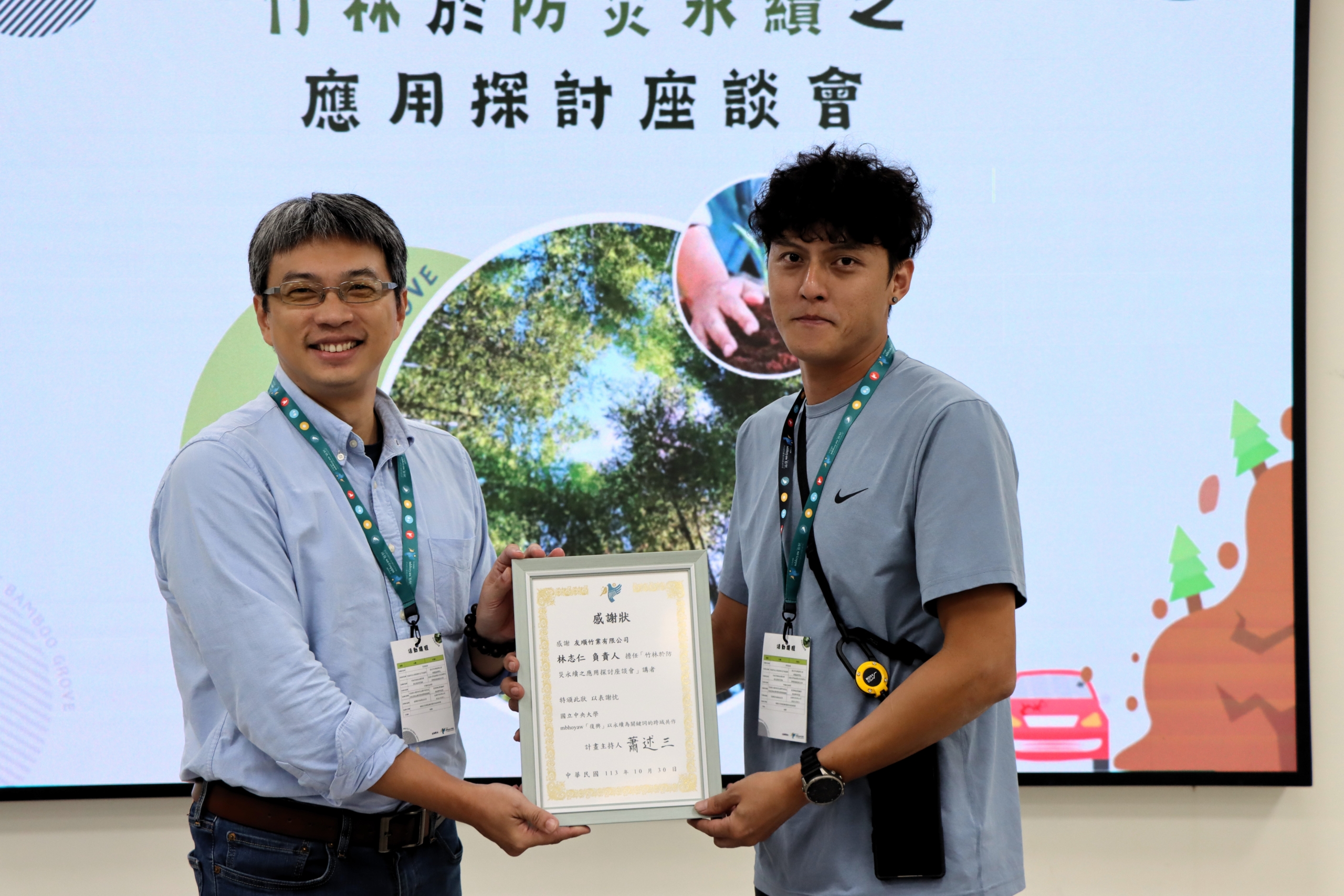The Makino Bamboo Industry and Atayal Culture
In 2015, Lin Chih-Jen, along with his brothers, founded Youshun Bamboo Industry Co., Ltd., a company specializing in the harvesting, transportation, and sale of bamboo from privately owned forests. Over the years, they have managed approximately 100 hectares of state-owned forest land and have undertaken projects commissioned by the Taoyuan City’s Department of Agriculture. However, starting in 2016, the implementation of the Logging Ban Compensation for Lands Reserved for Indigenous Peoples Act significantly impacted Lin’s income. To diversify revenue streams, Lin leveraged his expertise in cableway and rope repairs—skills developed through years of bamboo harvesting—and undertook the maintenance of the Maokong Gondola, ensuring the company’s operational sustainability.
Lin highlighted the profound connection between his hometown and Taiwan makino bamboo (Phyllostachys makinoi), stating, “Where there are Atayal people, there is makino bamboo.” The Atayal people, traditionally a semi-nomadic group engaged in slash-and-burn agriculture and hunting, carried makino bamboo during migrations due to its versatility for building homes and crafting everyday tools. Lin shared that his home in the Qapu Community was initially dominated by Morris’s persimmon trees (Diospyros morrisiana). Over time, however, the landscape transformed as the Atayal cultivated bamboo to replenish soil fertility after cycles of planting upland rice, millet, and sweet potatoes. When the land’s productivity waned, bamboo was planted to rejuvenate the soil. During migrations, the Atayal would transport the main structural beams for their homes, while the bamboo exteriors were sourced and replaced locally. Over time, the Qapu Community transitioned from terraced fields to extensive bamboo forests.
Since the 1980s, Taiwan’s bamboo industry has faced challenges from imported bamboo products and plastic alternatives, significantly reducing the profitability of makino bamboo. This decline also led the Han Chinese to begin purchasing bamboo shoots in the Fuxing District. Lin shared examples of makino bamboo applications over the past decade, noting that most bamboo he processed was used for agricultural supports or oyster racks. One memorable experience involved transporting bamboo to Tainan, where he observed residents working before dawn to assemble oyster racks, deeply affirming the importance of his logging work. Despite these uses, the core of the makino bamboo industry remains the production of high-value Japanese bamboo swords, which require bamboo of the highest quality.
The production of makino bamboo in Fuxing District primarily comes from the inland hills, encompassing Gaoyi, Sanguang, and Hualing villages. The front hills are more focused on harvesting bamboo shoots, which mature earlier and are in high demand, resulting in less emphasis on bamboo production. In contrast, the inland hills, faced with an oversaturated bamboo shoot market, have shifted their focus to bamboo harvesting as a primary industry. Lin Chih-jen highlighted the importance of forest management, noting that neglected bamboo groves fail to attract even monkeys. However, regular maintenance significantly enhances the quality and thickness of bamboo, demonstrating the tangible benefits of proper forest care and cultivation.
Challenges and Innovations in Industry Development
In the second half of his talk, Lin addressed the limitations faced by Youshun Bamboo Industry as an upstream player in the bamboo industry. The primary challenge lies in the shortage of labor in mountainous regions. Lin expressed his hope to attract more young people to return to their hometowns, enhance the technical aspects of bamboo harvesting, and move towards greater specialization. He highlighted the use of drone technology as a game-changer in identifying optimal collection points, improving transportation efficiency, and reducing physical strain. Lin humorously shared that his motivation to learn drone operation was because he no longer wanted to climb trees. In the past, setting up cableways and gathering materials required an in-depth understanding of terrain, topography, and elevation, often necessitating physical climbing. With drones, the process is not only more efficient but also facilitates tasks such as mapping land boundaries and locating old forest paths, significantly reducing labor demands.
Lin also pointed out that the Youshun Bamboo Industry currently covers the cost of constructing working roads when working in bamboo plantations. He called on the government to prioritize infrastructure improvements, particularly the development of mountain working roads, to support the industry. He concluded by emphasizing the risks associated with poorly managed bamboo forests, including soil erosion and ecological damage, which pose significant challenges for the future. Proper management, he argued, is crucial to mitigating these risks and ensuring the continued sustainability of the bamboo industry.
Speaker Manager Lin, Chih-Jen (Youshun Bamboo Industry Co., Ltd.)
Text by Deng, Jia-Yang
Editing by Li, Ruo-Jia
Photo by Li, Ruo-Jia




